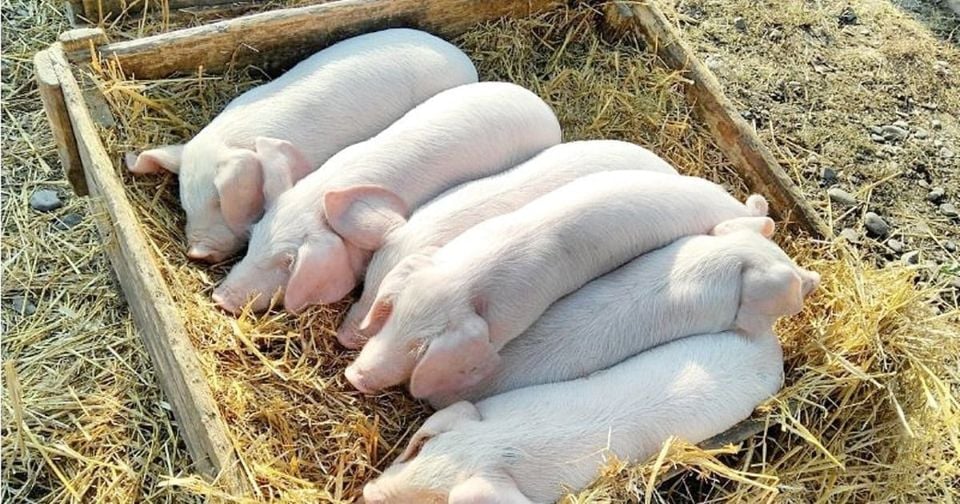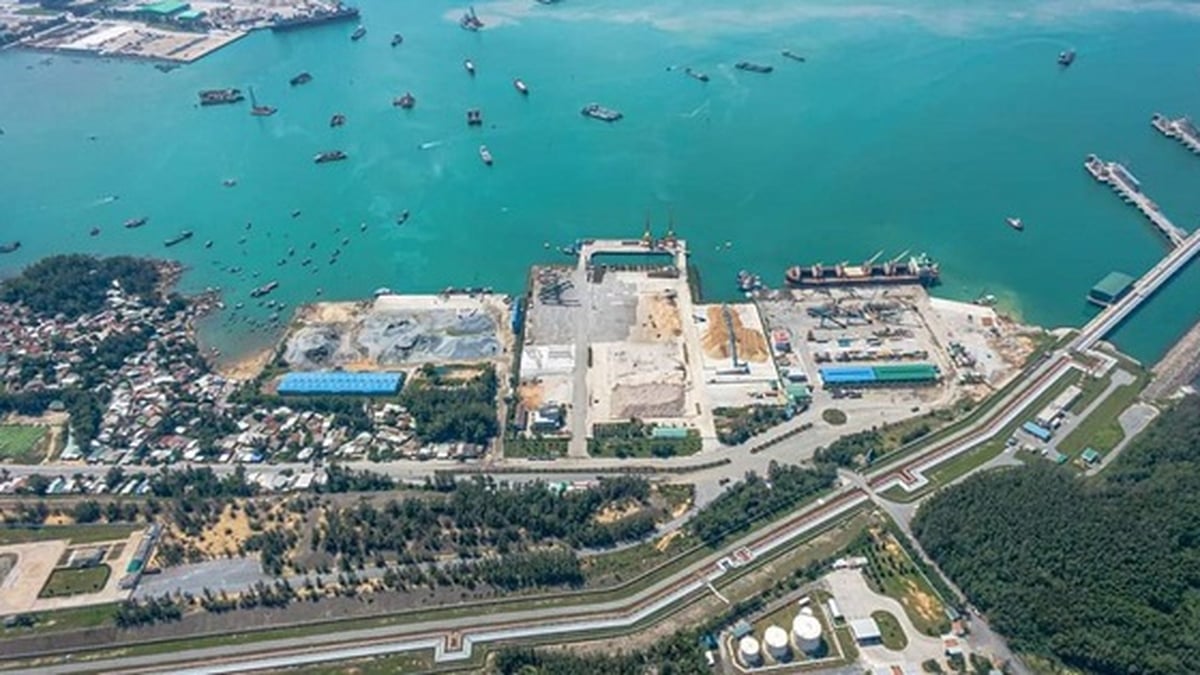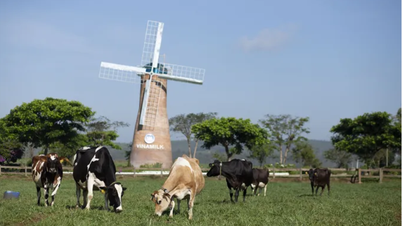Northern pig price
Illustration photo. (Photo source: Internet)
If in the early days of the week, the North still kept prices stable, today, many provinces have recorded the first downward adjustment. The decrease is not large but enough to signal that a new adjustment wave is starting to form in this area.
Specifically, provinces such as Lao Cai, Yen Bai , Phu Tho, Son La, Tuyen Quang, Hung Yen, Lang Son all decreased by 1,000 VND/kg, currently trading around 67,000 VND/kg. Dien Bien also decreased similarly, currently purchasing price is 67,000 VND/kg.
The three North Central provinces bordering the North, Thanh Hoa, Nghe An, and Ha Tinh, also lowered prices to 66,000 VND/kg, after many days of stable prices.
Some localities have not yet recorded any fluctuations, maintaining a stable level of 68,000 VND/kg such as Hanoi , Quang Ninh, Bac Ninh, Thai Nguyen and Hai Phong. However, with the current trend of supply exceeding demand, a downward adjustment in these provinces is said to be only a matter of time.
Pig price in Central Highlands
The Central Highlands region has seen a series of price reductions with adjustments ranging from VND 1,000/kg to VND 2,000/kg in most localities.
Specifically, Thanh Hoa, Nghe An, Ha Tinh, Quang Tri, Hue and Quang Ngai provinces all decreased by 1,000 VND/kg, currently purchasing at 66,000 VND/kg. Gia Lai decreased to 64,000 VND/kg, also losing 1,000 VND compared to the previous day.
Notably, Da Nang, Dak Lak, Khanh Hoa and Lam Dong all decreased by 2,000 VND/kg. Of which, live pigs in Da Nang, Dak Lak and Khanh Hoa are currently purchased at 65,000 - 66,000 VND/kg, while in Lam Dong at 67,000 VND/kg.
Pig prices in the Central Highlands today fluctuate at 64,000 - 67,000 VND/kg.
Southern pig price
The southern pig market continues to record a sharp downward trend in many provinces and cities.
Specifically, localities such as Tay Ninh, Ho Chi Minh City and Can Tho simultaneously reduced the purchase price by 2,000 VND/kg, bringing the purchase price down to 67,000 VND/kg; Vinh Long also reduced by 2,000 VND/kg, currently trading at 66,000 VND/kg.
Meanwhile, Dong Nai and Ca Mau decreased by 1,000 VND/kg, currently purchasing pigs at 68,000 VND/kg; Dong Thap and An Giang both decreased by 1,000 VND/kg, currently trading live pigs at 67,000 VND/kg.
Thus, the price of live pigs in the South today fluctuates between 66,000 - 68,000 VND/kg.
In general, the price of live pigs on July 9 decreased nationwide, with a decrease of 1,000 VND/kg to 2,000 VND/kg, bringing the common price to 64,000 - 68,000 VND/kg.
The large supply from concentrated farms, combined with weak consumption at wholesale markets such as Hoc Mon (Ho Chi Minh City) or An Hoa (Can Tho), has caused the Southern market to turn red across the board. According to experts, if this trend continues, the price of live pigs could fall to VND65,000/kg next week.
With the entire pig price map today almost turning red, especially in big cities like Ho Chi Minh City, Da Nang City and Can Tho City, the downward trend is happening simultaneously from North to South.
The main reason for this price drop is believed to be slow consumption at wholesale markets, as people tend to cut spending and switch to cheaper alternative protein sources such as fish, eggs or soybeans.
In addition, large farms are in the process of selling off their stocks to rebuild their herds at the end of the year, creating a supply pressure greater than actual demand in the market. Many small-scale farms are also taking advantage of the situation to sell off to avoid deep losses when the cost of animal feed remains high.
Agricultural experts say that if there are no major changes in demand or stabilization policies, pork prices will continue to move sideways or decrease slightly in the short term for a few more sessions. However, the medium-term trend still depends on demand from major cities and the ability of consumption to recover after the summer.
According to the report of Bac Giang Statistical Office, in the past 6 months, the province has not recorded any dangerous epidemics affecting livestock herds, the total herd size is stable and has a slight increase compared to the same period.
Bac Giang Statistics Office assessed that the total livestock herd size in the province tends to decrease over the years, with the following month being lower than the previous May due to low economic efficiency, narrowed grazing area, and reduced demand for traction.
Specifically, the total buffalo herd in the province is estimated at 24,450, down 5.1% over the same period last year; the cow herd is estimated at 95,125, down 3.4% over the same period last year; the pig herd is estimated at nearly 885,733, up 0.8% over the same period last year; the poultry herd is estimated at over 20.1 million, up 3.2% over the same period last year, of which the chicken herd is estimated at nearly 17.33 million, up 3.5%.
Source: https://doanhnghiepvn.vn/kinh-te/gia-heo-hoi-ngay-9-7-2025-dong-loat-giam-tren-toan-quoc/20250709083716981



































































































Comment (0)